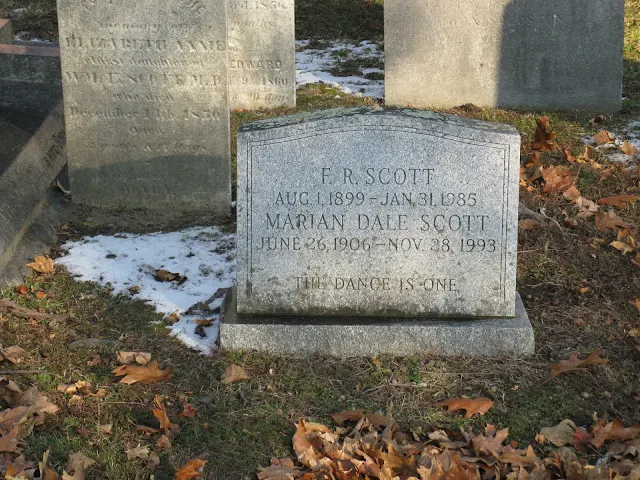If you remember (John) Leo Kennedy, one of the McGill Group of poets from the 1920s, and if you check out his bio in Wikipedia you'll see that they don't have a date of death for him. It was fairly easy to find out when he died, just look it up on the Social Security Death Index. Leo Kennedy had three children, two sons from a second marriage, and both sons seem to have disappeared. He also had a son from his first marriage, Peter Kennedy, who as of a year ago was still alive. After Peter Kennedy's parents' marriage ended in divorce Peter distinguished himself by attending Harvard University, becoming a medical doctor, and (as of this writing) lives in San Marino, CA, one of the most affluent communities in the California. Dr. Kennedy suffered a car accident a few years ago that seems to have ended his medical practise; after the accident Dr. Kennedy wrote a book, Medicine Man: Memoir of a Cancer Physician, and in the Introduction he notes that both of his parents were alcoholics or substance abusers; he's a lot tougher on his father than Patricia Morley was in her bio of Leo Kennedy. Maybe this explains why Leo Kennedy accomplished so little as a poet. Leo Kennedy spent his final years living in a hotel near his son's home in San Marino until his death at age 93 on 14 December 2000. BTW, Leo Kennedy was born in Liverpool, England, not in Michigan, where he lived for a number of years.
(When I did this research in February 2018 Wikipedia did not have a date of death for Leo Kennedy; I now see that as of May 2018 someone has corrected this by giving the year but not the day and month of Kennedy's passing.)
Showing posts with label Poetry in the 1920s. Show all posts
Showing posts with label Poetry in the 1920s. Show all posts
Sunday, June 17, 2018
Monday, August 21, 2017
Leo Kennedy, Montreal Poet
I've just read Patricia Morley's As Though Life Mattered, Leo Kennedy's Story (1994); Kennedy was one of the four poets that comprised the Montreal Group in the 1920s. The others were F.R. Scott, A.J.M. Smith, and A.M. Klein. Kennedy had one book in him, The Shrouding (1933); I've read some of the poems in this book and they are truly exceptional, had he written more and produced a larger body of work he might have been the best of the four poets. Instead, he wrote advertising copy (like Ron Everson), many book reviews, and some poems for children; however, the second or third book was never written. We can only judge a poet on what he or she produces, the marriages, poverty, fishing trips, drinking, this is all of interest but it isn't poetry.
Monday, August 14, 2017
"Laurentian Shield" by F.R. Scott
F.R. Scott was born in Quebec City on August 1st in 1899 but lived most of his life in Montreal. A member of the Montreal Group of poets, Scott, A.J.M. Smith, Leo Kennedy, A.M. Klein, Leon Edel, and John Glassco helped bring Modernism to Canada. Desmond Pacey's Ten Canadian Poets (1958) is still a good place for some insight into Scott's importance as a poet.
Here is one of Scott's most famous poems:
Here is one of Scott's most famous poems:
LAURENTIAN SHIELD
F. R. Scott
From: Events and Signals. Toronto: Ryerson Press, 1954.
From: Events and Signals. Toronto: Ryerson Press, 1954.
Hidden in wonder and snow, or sudden with summer,
This land stares at the sun in a huge silence
Endlessly repeating something we cannot hear.
Inarticulate, arctic,
Not written on by history, empty as paper,
It leans away from the world with songs in its lakes
Older than love, and lost in the miles.
This waiting is wanting.
It will choose its language
When it has chosen its technic,
A tongue to shape the vowels of its productivity.
A language of flesh and of roses.
Now there are pre-words,
Cabin syllables,
Nouns of settlement
Slowly forming, with steel syntax,
The long sentence of its exploitation.
The first cry was the hunter, hungry for fur,
And the digger for gold, nomad, no-man, a particle;
Then the bold commands of monopolies, big with machines,
Carving their kingdoms out of the public wealth;
And now the drone of the plane, scouting the ice,
Fills all the emptiness with neighbourhood
And links our future over the vanished pole.
But a deeper note is sounding, heard in the mines,
The scattered camps and the mills, a language of life,
And what will be written in the full culture of occupation
Will come, presently, tomorrow,
From millions whose hands can turn this rock into children.
This land stares at the sun in a huge silence
Endlessly repeating something we cannot hear.
Inarticulate, arctic,
Not written on by history, empty as paper,
It leans away from the world with songs in its lakes
Older than love, and lost in the miles.
This waiting is wanting.
It will choose its language
When it has chosen its technic,
A tongue to shape the vowels of its productivity.
A language of flesh and of roses.
Now there are pre-words,
Cabin syllables,
Nouns of settlement
Slowly forming, with steel syntax,
The long sentence of its exploitation.
The first cry was the hunter, hungry for fur,
And the digger for gold, nomad, no-man, a particle;
Then the bold commands of monopolies, big with machines,
Carving their kingdoms out of the public wealth;
And now the drone of the plane, scouting the ice,
Fills all the emptiness with neighbourhood
And links our future over the vanished pole.
But a deeper note is sounding, heard in the mines,
The scattered camps and the mills, a language of life,
And what will be written in the full culture of occupation
Will come, presently, tomorrow,
From millions whose hands can turn this rock into children.
Subscribe to:
Comments (Atom)



